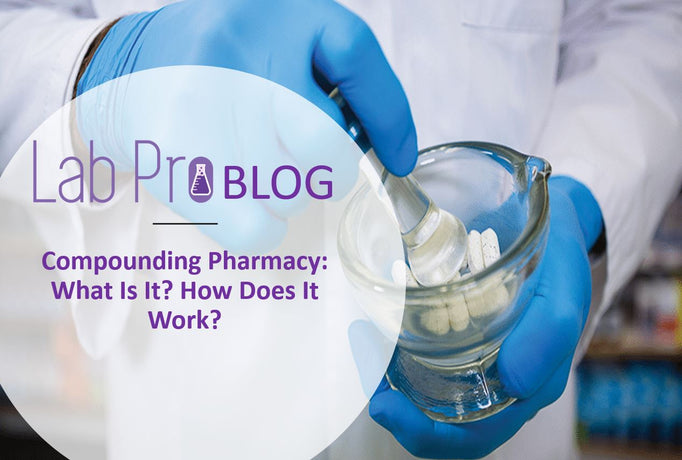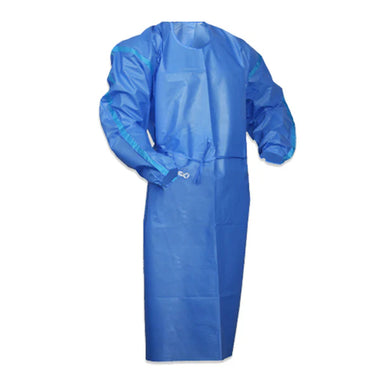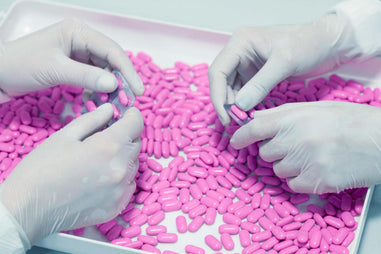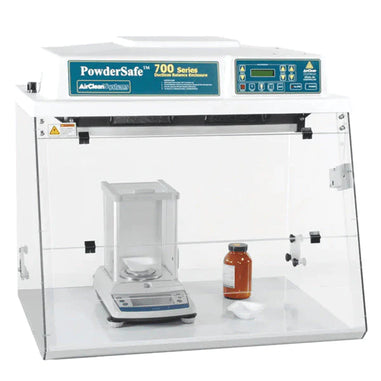- No products in the cart.
While traditional pharmacies meet the needs of most, there are some patients who need a more customized approach to their medications. That’s where compounding pharmacies come in.
Here, we’ll discuss what a compounding pharmacy is, why they are important, the benefits of a compounding pharmacy, and the difference between a compounding pharmacy and a regular pharmacy.
What is a compounding pharmacy?
A compounding pharmacy is a pharmacy that specializes in customized medications. The medications available at a compounding pharmacy are ones that are not mass produced and found in your traditional pharmacy. Instead, these medications are produced to meet the unique needs of the patient.

Compounding pharmacies make two types of compounds. The two types include sterile and non-sterile compounds. Sterile compounds are made in a controlled environment to minimize the risk of infections due to contaminants. Sterile compounds include such forms as infusions, eye drops, and injections. Non-sterile compounds include medications in the form of suppositories, capsules, and creams.
Why do they matter?
Compounding pharmacies make customized medications for people who have unique medication requirements or needs. These medications are ones that patients typically can’t take the commercial form of due to rare diseases, dosing requirements, or allergies. Compounding facilities cater to a diverse patient population and provide the only alternative to those who can’t take commercial meds.
What are the benefits of a compounding pharmacy?
There are many benefits of a compounding pharmacy. The biggest benefit is that they provide an alternative to those who can’t take commercial meds which may mean the difference between life and death for some patients or living with no quality of life to improving a patient’s quality of life. Compounding pharmacies essentially offer patients an alternative or another option when commercial meds don’t work or don’t work well enough.
Compounded medications are beneficial to those who need a customized dose, allergic to a component in the commercial version, a child or geriatric patient who can’t swallow the pill form and need a liquid or some other form that isn’t available, or for those on special diets.
Compounded medications also save the day during national drug shortages such as was the case in 2011 and during the COVID-19 pandemic. They fill in and are a backup for regular pharmacies during periods of medication shortages.
What is a compounding pharmacy example?
Compounding pharmacies can customize medications in several ways. They can alter the form of the medication, the flavor, and customize doses. If a patient can’t take the commercial form due to intolerances, allergies, a special medical condition or a child can’t swallow a pill, then a compounding pharmacy can take the commercial form and change the same medication into a different form such as a powder, liquid, capsule, liquid, patch, dissolvable under the tongue, cream, or ointment.
Not only do commercial meds come in standardized forms, but they also come in standardized dosages. If a patient needs a dosage that is not commercially available, then a compounding agency can customize the medication for the patient based on medical condition, age, weight, and sensitivity to side effects.
What is the difference between a compounding pharmacy and a regular pharmacy?
While both types of pharmacies prepare medications prescribed by doctors for patients, there are some differences between the two. The biggest difference being is that a traditional pharmacy provides commercial medications in standardized dosages.
Compounding pharmacies customize medications based on the specific needs of a patient. Compounding pharmacies can produce medications that best meet the needs of patients by altering or customizing doses, forms, and ingredients. Compounding pharmacies, as mentioned previously, cater to a more diverse patient population.
Does insurance cover compounded medications?
There’s no one good answer as to whether insurance covers compounded medications. It depends on the insurance company. Some insurance companies cover compounded prescriptions, some cover under certain circumstances, and some don’t cover compounded prescriptions at all. In a lot of cases, especially if the compounded prescription is long-term, the coverage will be determined on a case-by-case basis.
Even if some insurance plans cover compounded medications, there are often restrictions. Some require that the compounding pharmacy be in-network while others require that more is paid to out-of-network providers. More than that, you may run across a pharmacy that is in-network for regular prescriptions and for compound drugs, out-of-network.
There’s also the issue that one component in the compounded medication may not be on the coverage list of the insurance company. In this case, it wouldn’t be covered. The best policy is to always have the prescribing physician call the patient’s insurance carrier for pre-approval.
What are some common drugs that are compounded?
The most common compounded medications are those that manage and replace hormones. Some of these include the following:
- Baclofen
- Gabapentin
- Diclofenac
- Cyclobenzaprine
- Ketamine
- Flurbiprofen
- Bupivacaine
- Lidocaine
- Progesterone
- Anastrozole
- Estradiol
- Estriol
- Testosterone
For over 40 years, Lab Pro Inc. has been committed to delivering the highest quality hand tools, chemicals, lab equipment, distance learning kits, lab supplies, and cleanroom PPE apparel to medical device companies and laboratories worldwide. To learn more, visit the biggest Lab Supply showroom in California, or contact us online or at 888-452-2776.












































